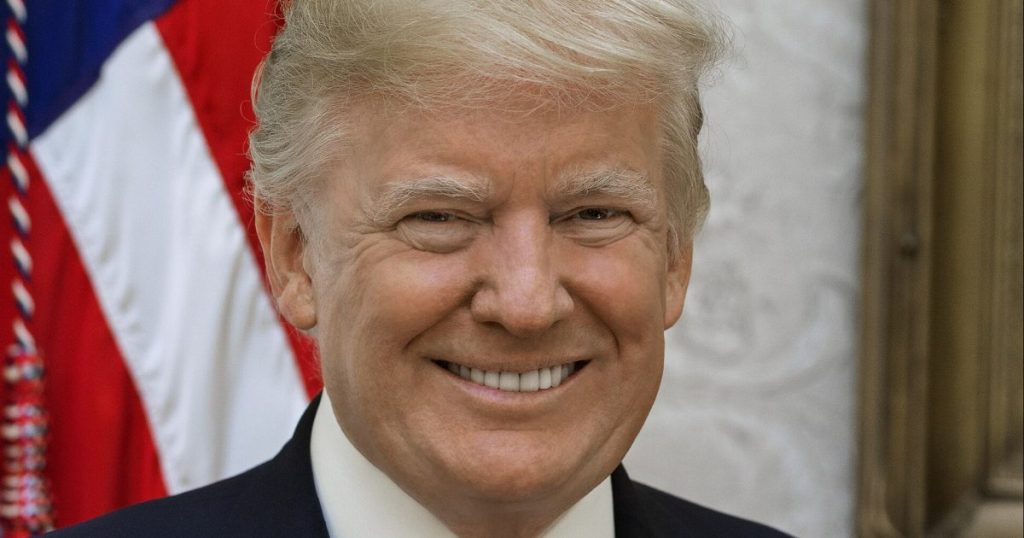Donald Trump has made a significant political comeback by reclaiming the United States presidency, becoming the 47th president in an unprecedented electoral victory. Having previously held office from 2017 to 2021, Trump’s return signifies not only a startling shift in the political landscape but also the potential re-emergence of his “America First” policy stance. His comeback took place amid a polarized political climate, where his bold strategies have continued to resonate with a substantial segment of the American electorate. The implications of his renewed presidency are manifold, affecting both domestic policies and international relations, as observers anticipate a restoration and expansion of the agendas he championed during his first term.
During his previous tenure, Trump’s administration was characterized by a distinct nationalist approach that sought to reshape U.S. policy across various sectors. His “America First” initiative aimed to revitalize American manufacturing, decrease reliance on China, and rectify trade imbalances. Key actions included the renegotiation of the North American Free Trade Agreement into the US-Mexico-Canada Agreement, the imposition of tariffs on imported products (most notably from China), and a departure from multilateral agreements like the Trans-Pacific Partnership. Moreover, Trump’s administration implemented a trade war against China aimed at safeguarding American jobs and industries, claiming that such policies were vital for working-class Americans. The reverberations of these nationalistic policies are likely to resurface as Trump seeks to rebuild his formidable political influence.
Trump’s presidency also left an indelible mark on immigration policy, which became one of the most controversial aspects of his administration. His ambitious plans included constructing a wall along the US-Mexico border, reinforcing strict immigration regulations, and advocating for policies such as the “Remain in Mexico” initiative for asylum seekers. These decisions prompted vehement debates both domestically and internationally, leading to criticism about their humanitarian implications. Furthermore, Trump’s influence reached far beyond mere policy enactment; he appointed three Supreme Court justices, contributing to a conservative tilt in the judiciary that may influence American law for generations. The repercussions of his past administration’s immigration policies are likely to echo in his new term, as he emphasizes stricter controls and a significant deportation effort aimed at illegal migrants.
Trump’s second term is expected to revive many of his previous policies while also introducing bold promises regarding domestic and international issues. These include his pledges to enhance energy independence by reversing Biden-era climate policies and revitalizing the oil and gas sectors. Trump’s commitment to a comprehensive immigration reform plan also involves completing his border wall project and reinstating immigration policies such as the “Remain in Mexico” approach. Additionally, he plans to focus on law enforcement by advocating for “law and order” initiatives that bolster police departments and increase repercussions for violent crime. His vision extends to education reform, where he promotes school choice and parental rights, further ensuring that cultural controversies, like Critical Race Theory, are excluded from the educational curriculum.
Regarding foreign policy, Trump’s administration is likely to adopt a tough stance on countries like China, asserting a rigorous approach toward limiting their influence while potentially imposing new tariffs. His position on international relations will also focus on building upon existing frameworks, such as the Abraham Accords, which normalized relations between Israel and several Arab nations. Furthermore, Trump aims to reiterate his hardline stance on Iran through reinforced sanctions and military strategy. As the geopolitical landscape evolves, his administration’s shifts in foreign policy might influence the U.S.’s alliances and partnerships, bringing both promises and challenges to international diplomacy and trade.
The global reactions to Trump’s reelection signal a mixture of cautious optimism and hope for renewed collaborations. Leaders from various nations, including Israeli Prime Minister Benjamin Netanyahu and Indian Prime Minister Narendra Modi, have expressed enthusiasm about his return, anticipating the benefits it may confer to their bilateral engagements with the U.S. Similarly, reactions from China have been decidedly cautious, with calls for peaceful coexistence while gearing up for a robust economic competition. European leaders, including French President Emmanuel Macron, have indicated a readiness to engage with Trump on common goals, reflecting a desire to stabilize relations. Alongside these international perspectives, voices from the immigrant community, like the Nigerians in Diaspora Organisation, emphasize the need for clarity on issues affecting immigrants and how Trump’s policies might evolve in this respect.
As Trump prepares to embark on his second term, the political dynamics he brings forth are undoubtedly complex. His presidency is poised to reinvigorate debates on trade, immigration, and foreign policy, prompting both support and opposition domestically and on the global stage. While the initial reactions from foreign leaders and financial markets hint at an era of potential growth and collaboration, the complexities of governance and international relations will challenge the effectiveness of his ambitious pledges. Consequently, the extent of Trump’s revival of the “America First” agenda, alongside the responses it elicits, will profoundly shape the future of American policy as well as its standing in the international community. The world remains watchful for the direction he will steer during this new chapter of his political journey.


